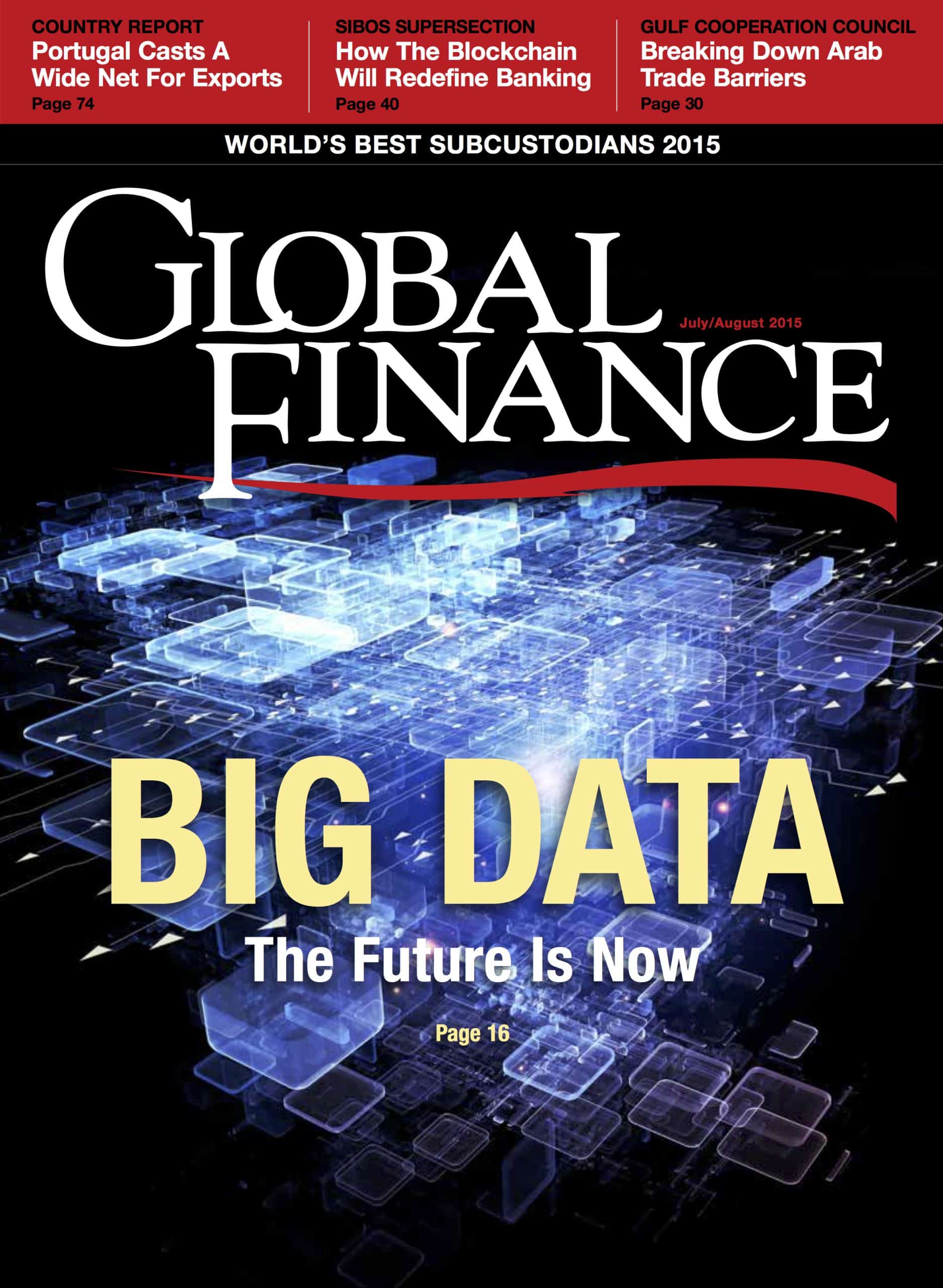At the beginning of the summer, credit insurance company Coface issued its monthly list of upgrades and downgrades of country risk.
JULY/AUGUST 2015 | VOL. 29 NO. 7

The results showed an interesting trend. Major oil and energy exporters —like Canada, Algeria and Gabon—found themselves on negative watch alongside Tanzania, which is suffering as a result of the strength of the US dollar, and Madagascar, suffering as a result of its political instability. At the same time, Coface’s risk assessment of China was downgraded, owing to concern about the level of private debt held by consumers, particularly in comparison with that held by other emerging economies. The Czech Republic, Portugal and Vietnam, on the other hand, were all upgraded. For us at Global Finance, it was one more sign that defining countries as developed or emerging markets is no longer useful or even appropriate, as diversification grows within each group and region.
The announcement of these changing risk profiles coincides with the World Bank’s recent forecast that growth in developed economies will be stronger for a few years than in the developing world—albeit with several important exceptions. This inversion in the growth pattern of developed versus emerging economies is exemplified by the smallest gap in 15 years in overall GDP growth figures between the two blocs.
In this relatively new environment, our cover story on Big Data and its increasing usage in the corporate world highlights another important trend. Technology—and the never-ending parade of new apps and their associated reams of data—influences almost every individual, and certainly every company, in the world. Political and economic uncertainty might affect the amount of money that a single company or industry is investing in the use of Big Data, but the trend is clear. And the effects of that trend are just beginning to show on society and on the corporate world.

Andrea Fiano | Editor
afiano@gfmag.com



